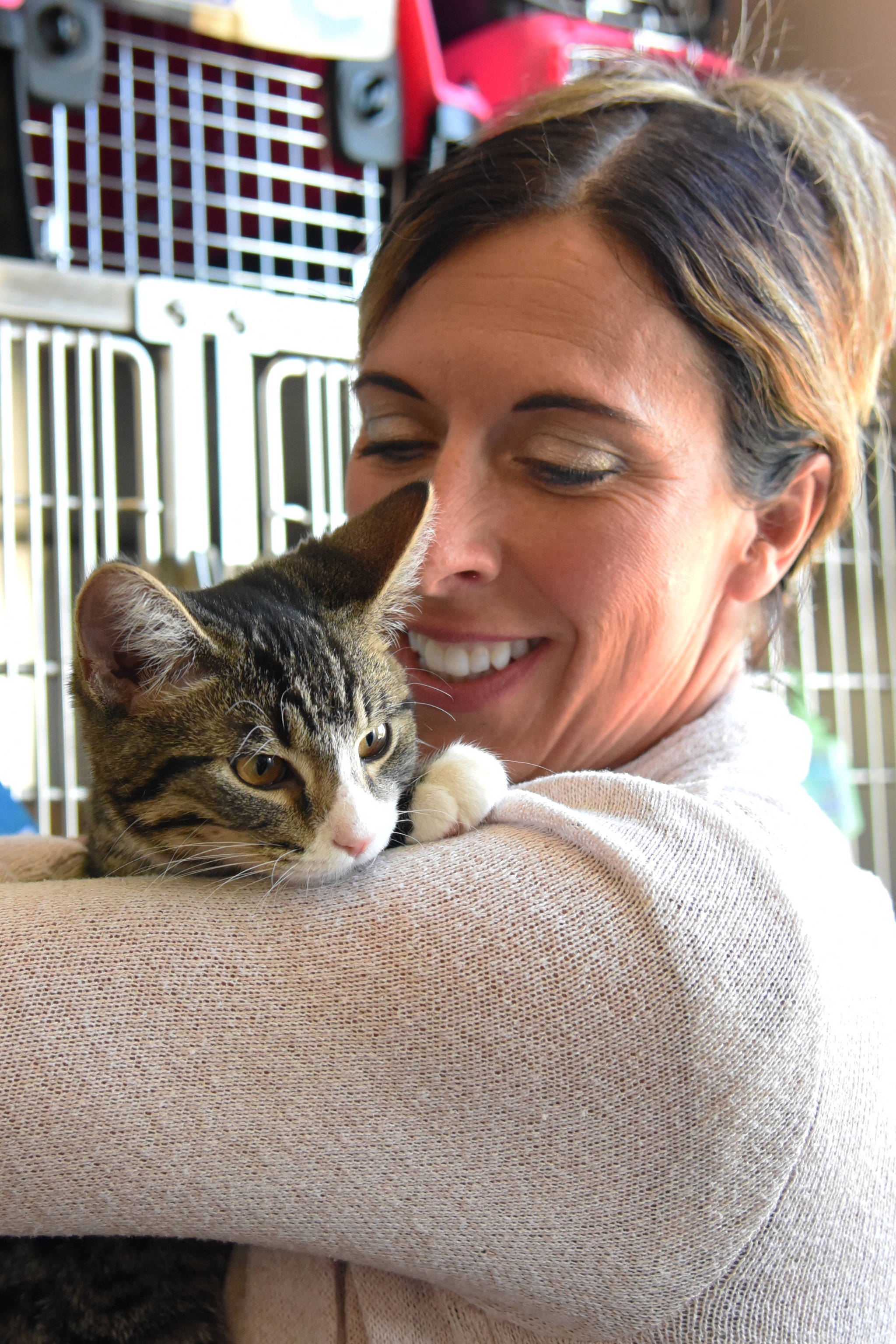The Central Alberta Humane Society (CAHS) is now offering reduced rates on spaying and neutering cats and dogs through the Prevent Another Litter Subsidy (PALS) Program, thanks to an anonymous donor.
“This program is so awesome for us — we’re really excited about it because it is the first time we have actually been able to offer low income services to the community,” said Tara Hellewell, executive director of CAHS.
The prevention program is being implemented in direct response to the overpopulation of cats in the area.
At one point last year, CAHS had 200 cats in care at their facility plus another 400 on the waiting list – a strain experienced by all shelters in the region.
An anonymous donor approached Hellewell challenging her to think outside the box as to how she could help combat the crisis in Red Deer. The donor will donate $20,000 annually for two years. The clinic hopes to fix upwards of 200 animals.
Pet owners who qualify will still pay an administration fee of $30 per cat and $60 per dog for surgeries, spay (for females) and neuter (for males). The program will also include core vaccines and microchip identification, if required.
“There are many reasons to spay and neuter an animal. There are many health reasons and behaviour reasons too, so in the long run it’s much better to do that,” Hellewell said.
“Inevitably, if you don’t spay and neuter your cat and you allow them to free roam — which most people do, because if you’re going to have an unspayed or unneutered cat in the house they are going to drive you crazy, so undoubtedly people are letting them out—you are directly responsible for the suffering of animals.”
CAHS sees animals suffering needlessly every day, particularly cats and underage mothers having litters in poor outdoor conditions is a major cause of this.
Through her work with the Canadian Federation of Humane Societies, Hellewell said, she is realizing that the way Canadians view cats as having a much lower value than dogs is a major factor contributing to the over-population.
She added that there are also many pet-owners who want to do the right thing for the animals but many can’t afford to.
“Putting a price tag of $300-400 on a spay or neuter for a lot of people is just not feasible,” Hellewell said.
CAHS doesn’t think it’s fair to take away the joy of having a pet in your life just because you happen to be lower income.
“We feel that they should have the same opportunities and programs like this really help them to be responsible pet owners,” Hellewell said.
Pet owners interested in applying for the PALS Financial Assistance can find the application form on the CAHS website.
At this time CAHS is asking for donations towards the PALS Program, though they are always grateful for their donors contributions to their overall efforts.



